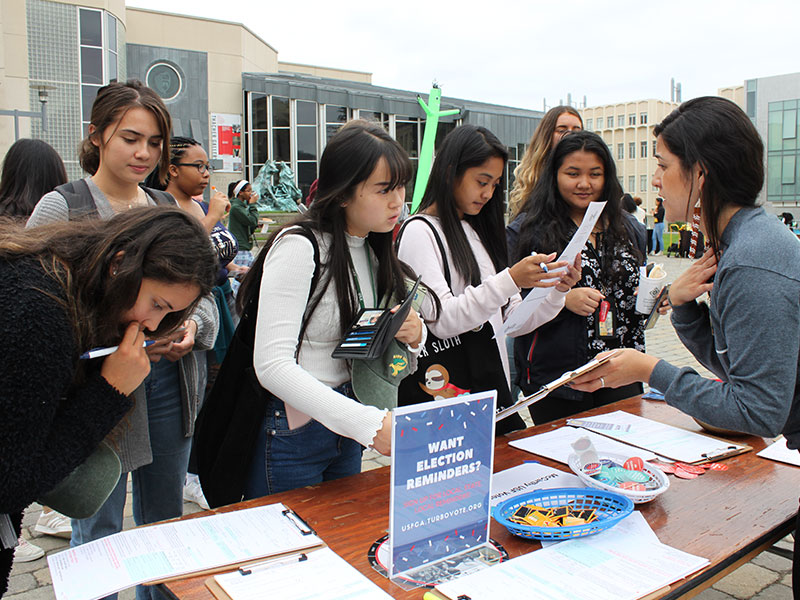
Amid calls to increase resources for civic learning, the director of the American Democracy Project suggests ways institutions can make efforts stick.
From Higher Ed Dive
By Catherine Copeland
Dec. 9, 2021
Scrambling for more resources is a dance that higher education institutions know only too well. Competing purposes splinter universities’ resources, and prioritizing issues of the common good — like civility and responsible stewardship — often are overlooked.
In his Sept. 9 op-ed, Jack Calareso surmised that universities may not have the “right people” on campus to lead objective analyses into issues of the common good. His essay suggested that devoting additional resources should be a goal for each higher education institution.
Catherine Copeland
Permission granted by AASCU
In a world of competing priorities, though, the resources that are deployed often engage in merely episodic intervention, which amplifies the commercialization of higher education and diminishes the core democratic goals of diversity, equity and inclusion. Colleges and universities must commit to building civic engagement as a lifelong practice in order to prioritize the enrichment of all students, especially low-income, first-generation, and students of color. Moreover, to strengthen the local community, colleges and universities should deploy resources focused on engaging mutually beneficial and reciprocal partnerships.
The American Association of State Colleges and Universities, through the American Democracy Project, or ADP, has created a network of institutions focused on instilling civic agency in our students and across our institutions. AASCU institutions enthusiastically responded when ADP, a nonpartisan initiative of AASCU in partnership with The New York Times, launched in 2003, and, almost two decades later, ADP continues to prepare students to be informed and engaged citizens.
We believe strongly, though, that this is not just a call for a subset of institutions. Instead, every college and university can incorporate civic learning as a foundation of their institution. From the experiences gained through AASCU’s ADP, we suggest the following:
Recognize ongoing work: Commit significant professional rewards to faculty and staff who integrate civic projects and community partnerships into their curricular and co-curricular work. In addition, champion opportunities for collaboration, both within your campus and with a larger network of regional and national connections. Institutions have better student retention outcomes, and students leave as informed and engaged citizens, when faculty, staff and administrators have the time and space to explore, create and deploy new ideas.
Be stewards of place: AASCU institutions lead as stewards of place and, as part of that effort, ADP fosters innovative campus-community partnerships to solve common problems and build stronger communities. Integrate reciprocity, codesigning, attentive listening, and mutual respect into campus programming, thereby allowing a deeper understanding of how the campus-community partnership is mutually beneficial.
Encourage a multidimensional approach: Democracy is an aspiration in need of constant attention, vision, creativity and will. A multidimensional approach to civic awareness goes beyond the episodic experience of voting. Encourage programming that integrates curricular and student life experiences, promotes civic agency, develops civic- and equity-minded pedagogies, and fosters experiential and community-based learning.
Americans have been tasked with, as Benjamin Franklin adroitly expressed, “a democracy … if you can keep it.” Higher education campuses are an investment in our future, and we need to push for faculty, staff and students to have the resources and the support they need to deliver on America’s promise to everyone. Democracy thrives through community-driven action; civic engagement efforts on college and university campuses flourish by supporting the people at our institutions who are doing the work.
Photo: SF Weekly
Read this and other stories at Higher Ed Dive

